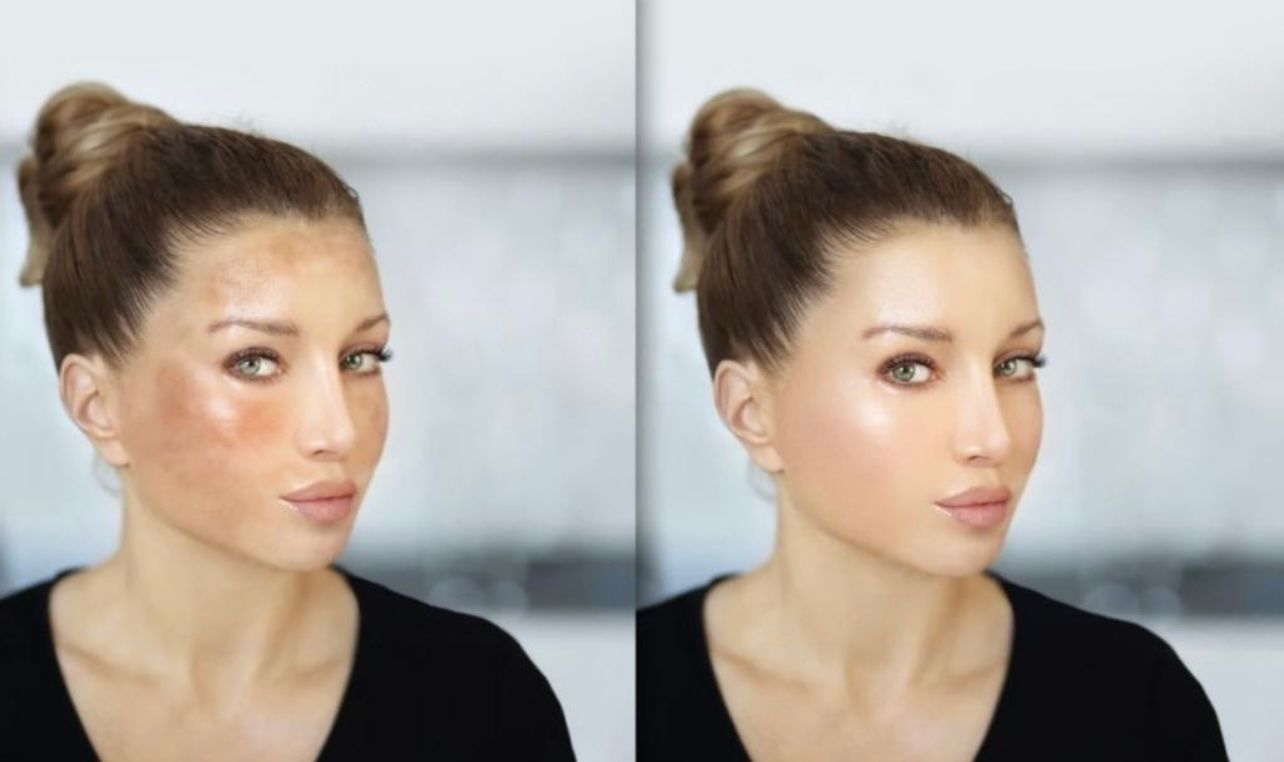Brighten Up: How Nutrition Can Fade Hyperpigmentation
Consuming a diet that includes ample amounts of vitamin C, vitamin E, niacinamide, and antioxidants can aid in diminishing melanin production, fostering a balanced complexion, and maintaining optimal skin well-being.

Hyperpigmentation, characterized by dark patches or spots on the skin, is a common skin concern that can affect individuals of all ages. While topical treatments can help fade hyperpigmentation, nourishing your skin from within through proper nutrition is an essential component of achieving a brighter and more even complexion. In this article, we will explore the relationship between nutrition and hyperpigmentation, discuss key nutrients that support skin health and reduce pigmentation, provide examples of foods that promote skin brightening, and offer practical dietary tips to fade hyperpigmentation naturally.
Understanding Hyperpigmentation
1.Melanin and Skin Color: Melanin, a pigment produced by specialized cells called melanocytes, determines our skin color. An overproduction or uneven distribution of melanin can lead to hyperpigmentation.
2. Causes of Hyperpigmentation: Hyperpigmentation can be triggered by various factors, including sun exposure, hormonal changes, inflammation, and skin injuries.
Key Nutrients for Skin Brightening and Examples of Foods
1.Vitamin C: Vitamin C is an essential nutrient for skin health and plays a significant role in reducing hyperpigmentation. It inhibits melanin production and promotes a more even skin tone. Citrus fruits, strawberries, bell peppers, and kiwi are rich in vitamin C.
2. Vitamin E: Vitamin E is a potent antioxidant that helps protect the skin from oxidative stress and supports overall skin health. Almonds, sunflower seeds, spinach, and avocados are good sources of vitamin E.
3. Niacinamide: Niacinamide, a form of vitamin B3, has been shown to reduce hyperpigmentation by inhibiting melanin transfer. Foods like tuna, chicken breast, mushrooms, and peas contain niacinamide.
4. Antioxidants: Antioxidants, such as resveratrol and flavonoids, can help reduce oxidative stress and support skin brightening. Berries, grapes, green tea, and dark chocolate are rich in antioxidants.
Dietary Tips to Fade Hyperpigmentation
1.Include Colorful Fruits and Vegetables: Consuming a variety of colorful fruits and vegetables ensures a diverse intake of antioxidants, vitamins, and minerals essential for skin health and brightening. Aim for a rainbow of produce on your plate.
2. Hydration: Staying hydrated is crucial for maintaining skin health and promoting the elimination of toxins. Drinking an adequate amount of water helps keep the skin plump and supports natural cell turnover.
3. Protect Your Skin from the Sun: Sun exposure can worsen hyperpigmentation. Wear broad-spectrum sunscreen, protective clothing, and hats when going outdoors to shield your skin from harmful UV rays.
4. Avoid Trigger Foods: Some individuals may find that certain foods trigger inflammation and worsen hyperpigmentation. Keep a food diary to identify any potential triggers and eliminate them from your diet if necessary.
SUMMARY
While topical treatments can be effective in fading hyperpigmentation, addressing the issue from within through proper nutrition is equally important. Incorporating foods rich in vitamin C, vitamin E, niacinamide, and antioxidants can help reduce melanin production, promote a more even skin tone, and support overall skin health. Additionally, maintaining hydration, protecting your skin from sun damage, and avoiding potential trigger foods are essential in fading hyperpigmentation. Remember that results may vary, and consistency in a healthy lifestyle and skincare routine is key.
Jayti Shah is a Clinical Nutritionist with a master's degree in Clinical Nutrition and Dietetics. She is a member of the Indian Dietetic Association (IDA). Over the last 9 years, she has helped 400 clients in their clinical and weight loss journeys. She works with SocialBoat as a nutrition consultant.
At SocialBoat, we offer custom diet plans and guided workouts to help you achieve your goals in a 360-degree approach. Our gamified experience ensures that you don’t find workouts boring and we reward you for being consistent with your efforts.

REFERENCES
- Tundis R, Loizzo MR. Natural products for skin hyperpigmentation: The role of botanicals and related products. Cosmetics. 2016;3(3):27.
- Farris PK. Topical vitamin C: A useful agent for treating photoaging and other dermatologic conditions. Dermatol Surg. 2005;31(7 Pt 2):814-818.
- Namazi MR. Nicotinamide in dermatology: A capsule summary. Int J Dermatol. 2007;46(12):1229-1231.
- Pullar JM, Carr AC, Vissers MCM. The roles of vitamin C in skin health. Nutrients. 2017;9(8):866.
- Schagen SK, Zampeli VA, Makrantonaki E, Zouboulis CC. Discovering the link between nutrition and skin aging. Dermatoendocrinol. 2012;4(3):298-307.
